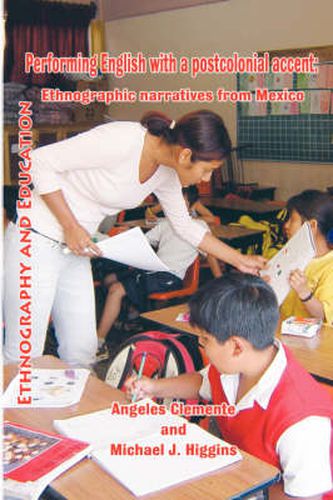Readings Newsletter
Become a Readings Member to make your shopping experience even easier.
Sign in or sign up for free!
You’re not far away from qualifying for FREE standard shipping within Australia
You’ve qualified for FREE standard shipping within Australia
The cart is loading…






This title is printed to order. This book may have been self-published. If so, we cannot guarantee the quality of the content. In the main most books will have gone through the editing process however some may not. We therefore suggest that you be aware of this before ordering this book. If in doubt check either the author or publisher’s details as we are unable to accept any returns unless they are faulty. Please contact us if you have any questions.
‘The postcolonial condition represents the political, social and cultural realities of what constitutes the everyday lives of the actors entangled in the whirlwind of globalisation . How they learn, appropriate, modify, and redefine their use of English as a series of multilingual social and cultural performances’ is what is meant by a postcolonial accent. With the dominant role that English plays in the globalised political economy of the contemporary postcolonial world, students and educators from all over the world are confronting the questions: who controls how they perform languages; when they can play with these languages; and how they can locate themselves in the social and cultural dynamics and issues that compound their everyday lives? Taking a critical perspective, and using postcolonial paradigms, the authors draw on the experiences of students in Oaxaca, Mexico to examine the issues raised by postcolonial English.This book is intended for scholars and students in applied linguistics, cultural anthropology, SLA, and cultural studies; for those working in English as an additional language and Latin American community studies; and for non-native teachers of English and language teachers interested in performativity and postcolonial discourses.
$9.00 standard shipping within Australia
FREE standard shipping within Australia for orders over $100.00
Express & International shipping calculated at checkout
This title is printed to order. This book may have been self-published. If so, we cannot guarantee the quality of the content. In the main most books will have gone through the editing process however some may not. We therefore suggest that you be aware of this before ordering this book. If in doubt check either the author or publisher’s details as we are unable to accept any returns unless they are faulty. Please contact us if you have any questions.
‘The postcolonial condition represents the political, social and cultural realities of what constitutes the everyday lives of the actors entangled in the whirlwind of globalisation . How they learn, appropriate, modify, and redefine their use of English as a series of multilingual social and cultural performances’ is what is meant by a postcolonial accent. With the dominant role that English plays in the globalised political economy of the contemporary postcolonial world, students and educators from all over the world are confronting the questions: who controls how they perform languages; when they can play with these languages; and how they can locate themselves in the social and cultural dynamics and issues that compound their everyday lives? Taking a critical perspective, and using postcolonial paradigms, the authors draw on the experiences of students in Oaxaca, Mexico to examine the issues raised by postcolonial English.This book is intended for scholars and students in applied linguistics, cultural anthropology, SLA, and cultural studies; for those working in English as an additional language and Latin American community studies; and for non-native teachers of English and language teachers interested in performativity and postcolonial discourses.